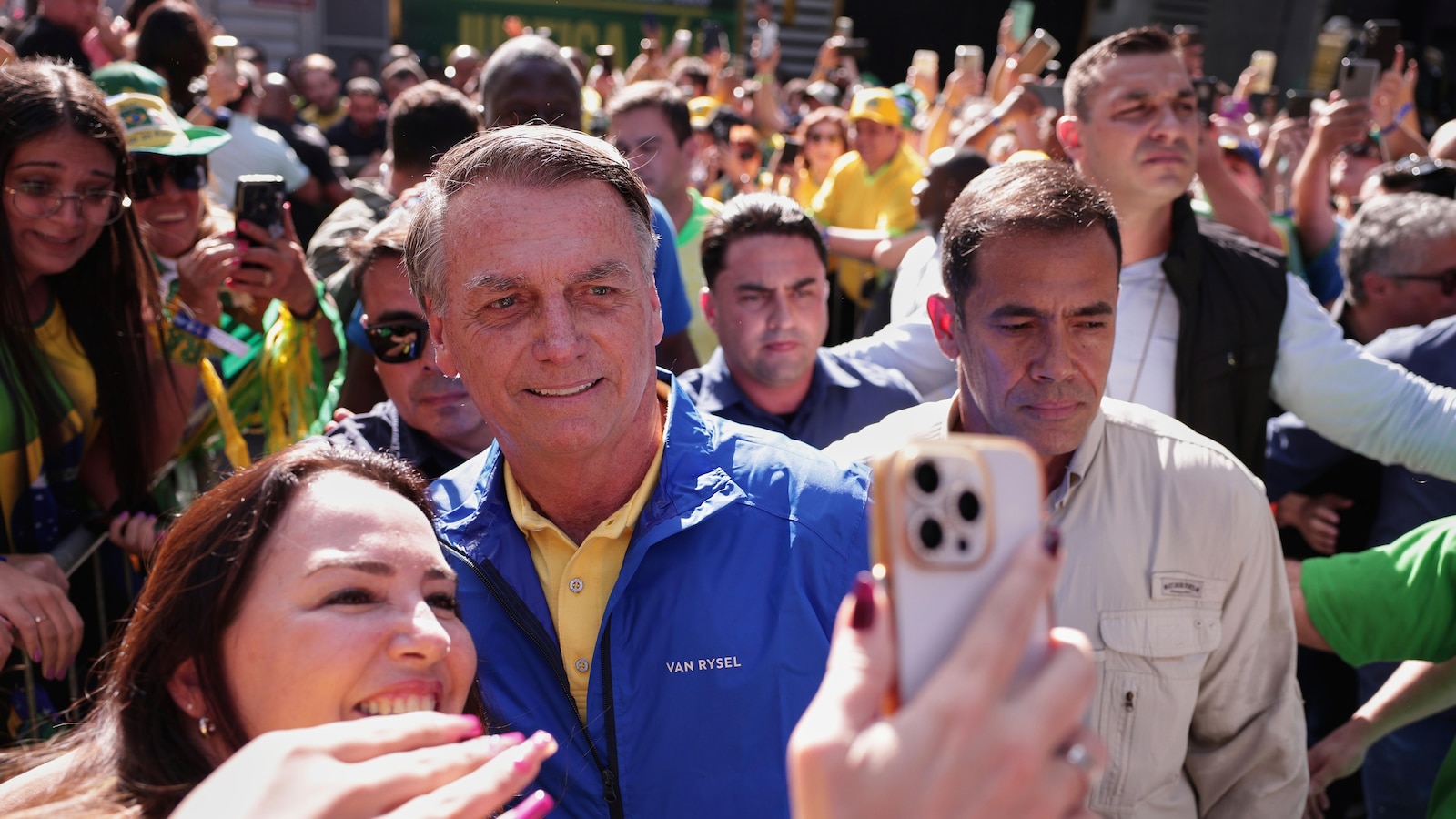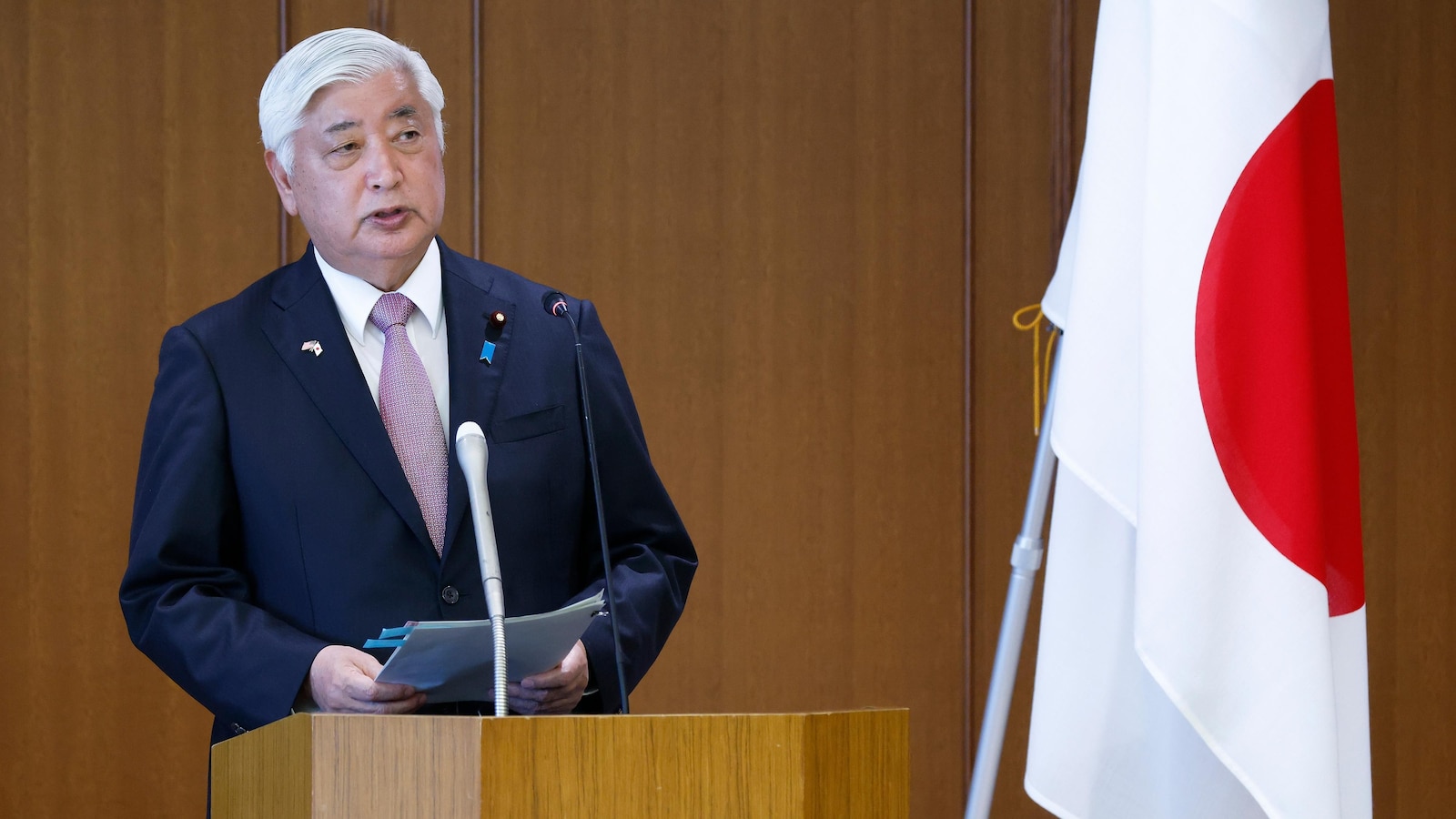ARTICLE AD BOX
President Trump said Monday he will not back off his sweeping tariff plan but will be “flexible” in how he taxes imported electronics and car parts, cheering Wall Street investors.
Speaking from the Oval Office, Mr. Trump said he is considering short-lived exemptions for auto companies as they switch from foreign-made parts to those made in the U.S.
“I’m looking for something to help some of the car companies, where they’re switching to parts that were made in Canada, Mexico and other places, and they need a little bit of time because they’re going to make them here,” Mr. Trump said. “But they need a little bit of time, so I’m talking about things like that.”
Mr. Trump addressed his 25% tariff on cars three days after his administration exempted electronics from the 125% tariff it imposed on Chinese imports.
Mr. Trump dismissed the idea he was granting favors, saying items like semiconductors had to be tariffed in a separate “bucket” because of national security concerns. Microprocessor chips, computers and smartphones from China are still subject to a 20% tariff related to the fentanyl crisis.
Mr. Trump said a new tariff framework for Chinese electronics would be issued “very soon,” a sign the carveout from China tariffs for certain electronics will not last long.
“I’m a very flexible person. I don’t change my mind, but I’m flexible,” Mr. Trump said. “I don’t want to hurt anybody. But the end result is we’re going to get to the position of greatness for our country.”
Wall Street, particularly tech and automotive stocks, responded positively to the developments after a tumultuous month stemming from Mr. Trump’s decision to impose a blanket 10% tariff on all imports and massive levies on Chinese goods.
The Dow Jones Industrial Average jumped over 300 points, or nearly 0.8%, on Monday while the S&P 500 and Nasdaq edged up roughly 0.8% and 0.6%, respectively.
“Even the stock market’s up today,” Mr. Trump said during an Oval Office meeting with El Salvadoran President Nayib Bukele.
Turmoil in the markets, and increases in bond yields in particular, spooked Mr. Trump last week, prompting him to pause major tariffs on dozens of nations for 90 days as he tries to reorder the global trade in favor of the U.S. and its workers.
Critics said the administration appeared to be playing a dangerous improvisational game with the U.S. economy, though Trump officials insist they are using leverage wisely.
“We’ve got everybody in the trade team, and even deputies of people of the trade team, talking to just about everybody on earth,” Kevin Hassett, the director of the White House National Economic Council, told Fox Business Network’s “Mornings with Maria.” “And I think that we’ve got more than 10 deals, where there’s very, very good, amazing offers [being] made to the U.S.”
Tariffs are a tax or duty paid by importers on the goods they bring in from foreign markets.
Mr. Trump is using tariffs to force companies to return or keep manufacturing operations in the U.S., employ American workers and create federal revenue to fund domestic programs.
Foreign countries don’t pay the tariffs directly to the U.S. Treasury. In many cases, U.S. companies will pay the levies, and they might pass on at least some of the cost to consumers through higher prices.
Earlier this year, the White House imposed a 25% tariff on steel and aluminum imports and a 25% tariff on cars not made in the U.S.
Canada and Mexico are still subject to a 25% tariff over the fentanyl crisis, though a range of goods are exempt under the U.S.-Mexico-Canada agreement.
The emerging trade war is causing turmoil among U.S. apparel makers, farmers, restaurants and other companies that rely on foreign suppliers and markets.
The Chinese portion is taking the biggest bite. Beijing is imposing a 125% tariff on U.S. goods in response to Mr. Trump’s tariffs on its goods.
Mr. Trump and Chinese President Xi Jinping both seem to be waiting for the other leader to blink first or open the door to negotiations.
In the meantime, China is fostering its relations with other parts of the world. Mr. Xi on Monday kicked off a visit to Vietnam, Malaysia and Cambodia, and Beijing is courting Europe, too.
“As the second and third largest economies, China and the EU collectively account for over one-third of the global economy and more than a quarter of global trade,” Chinese foreign ministry spokesman Lin Jian said Monday. “China stands ready to work with the international community, including the EU, to step up communication and coordination, share development opportunities, expand opening up and cooperation, and achieve mutual benefits.”
China is also slow-walking the export of critical rare earth minerals used in weapons systems and electric vehicles, signaling its retaliation against the U.S. will extend beyond tariffs.
Ms. Hassett said the Department of Commerce and Small Business Administration are talking to small businesses, “understanding their concerns and thinking about how best to address them,” such as finding alternate suppliers outside of China.
More tariffs are coming. Mr. Trump said he would be imposing a sector-based tariff on imported pharmaceuticals in the “not-too-distant future.”
He said the levies would force companies to make their medicines in the U.S.
“We’re doing it because we want to make our own drugs,” Mr. Trump said, likening it to the tariff on cars. “We, as you know, have a 25% tariff on cars, we have a 25% tariff on steel and aluminum, and that’s what that category fits right now.”
Vice President J.D. Vance said efforts to make critical medicines, weapons and other supplies in the U.S. will be worth the recent disruptions in markets.
“We don’t make enough of that stuff,” he said. “I actually think over the long term, workers are going to benefit, stocks are going to go up. American businesses are going to benefit as we reinvest and reindustrialize our country.”
Mr. Trump said his plan is already working. He’s pointed to foreign automakers and large companies, including Apple, that recently announced major investments in U.S. manufacturing.
NVIDIA, a major chips manufacturer, said Monday it planned to make its artificial-intelligence supercomputers entirely in the U.S. It will use plant space in Arizona and Texas.
“It’s one of the biggest announcements you’ll ever hear,” Mr. Trump said. “NVIDIA controls almost the entire sector, which is one of the most important sectors in the world.”

 3 months ago
58
3 months ago
58








 English (US) ·
English (US) ·